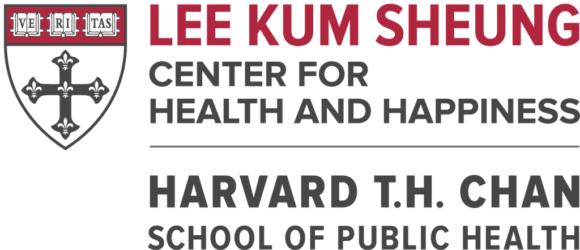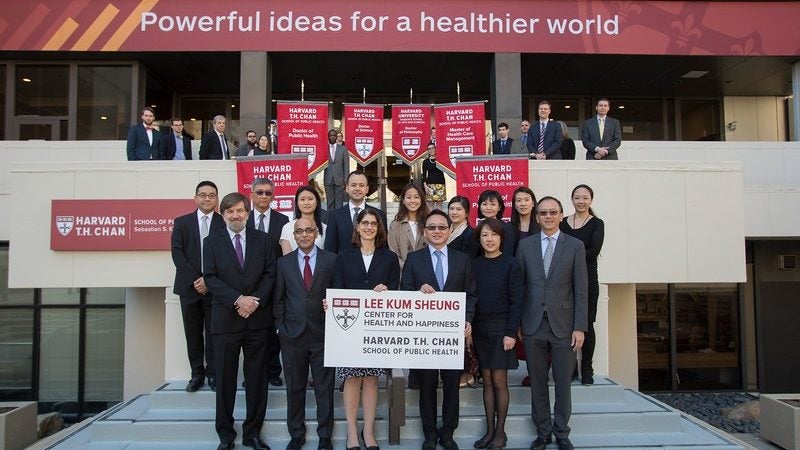Mission statement: The mission of the Lee Kum Sheung Center for Health and Happiness is to build a rigorous and interdisciplinary science of positive health, happiness, and well-being with a focus on health equity, and to translate the science to influence practice and policy. We aim to achieve this through:
- Knowledge production
- Capacity building
- Translation and communication
We will accomplish this by conducting and supporting primary research, investing in the next generation of scholars, and building networks that leverage the breadth and depth of interdisciplinary knowledge and expertise across Harvard University.
Vision: The Center hopes to transform thinking in public health and medicine from a deficit- to asset-based approach, with the goal of achieving positive well-being, health, and happiness globally for all.
Funded through the initiative and generosity of the Lee Kum Kee family of Hong Kong, the Center represents a unique opportunity to advance scientific understanding of the connections between positive psychological well-being, positive social environments, and physical health.
Integrating three key areas of focus—basic science research, intervention research, and translational and communication research—the Center also aims to develop tools to more accurately measure physiological well-being and to translate scientific findings to influence public health practice and policy.
The Center is designed to serve as a central hub to advance science through primary research and promote collaboration among investigators from across Harvard and beyond. The Center’s scope spans multiple disciplines—including health communications, psychology, nutrition, exercise physiology, basic biology, epidemiology, and population sciences. The Lee Kum Sheung Center for Health and Happiness offers great potential to improve the lives and health of people everywhere.

